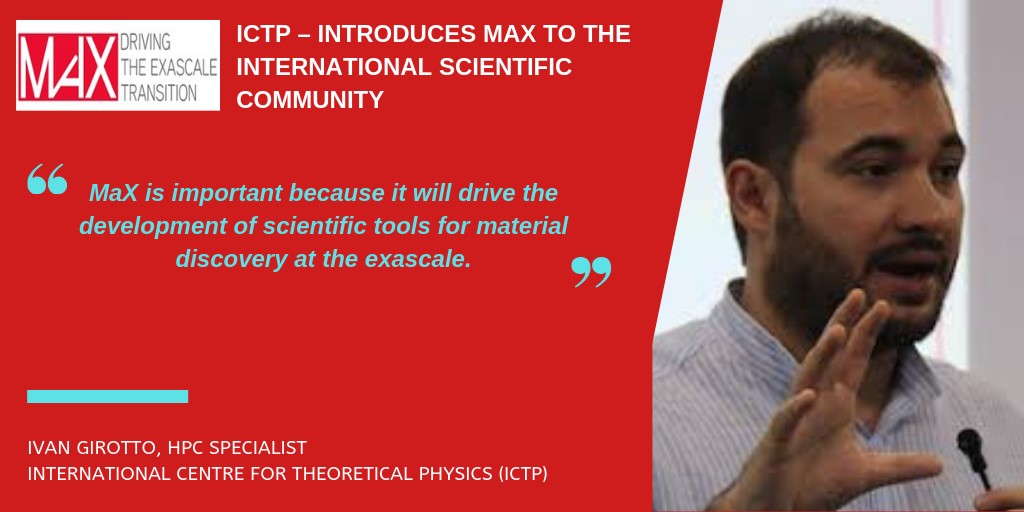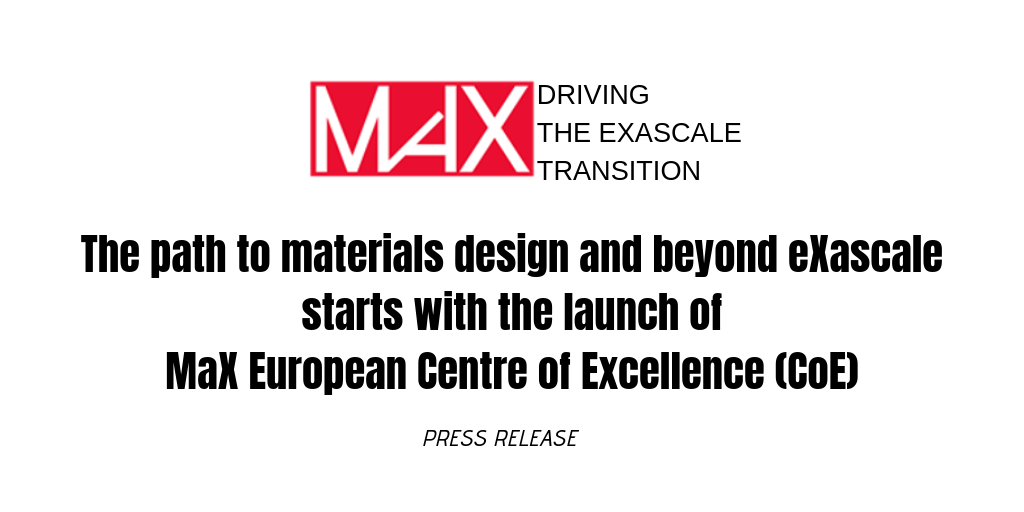Leading MaX in eXascale-ready Scientific Software Development
“ MaX electronic structure codes (already are but) will be even more capable of addressing scientific and societal grand challenges related to materials such as organic and flexible electronics or energy harvesting and storage photovoltaics, catalysis, batteries), to name a few. Selected examples will be addressed explicitly in Work Package (WP) 6, demonstrators.”
What innovative aspects will your organisation bring to MaX CoE?
CNR (National Research Council in Italy) is the largest public research institution in Italy and has the task of carrying out, promoting, disseminating, transferring and enhancing scientific and technological research activities in the main areas of knowledge development and their applications for scientific and technological, economic and social development. CNR stands for CNR-NANO (located in Modena), CNR-ISM (located in Rome), CNR-IOM (located in Trieste/Udine).
The organization has a double role in MaX. On one side it is the Management node, hosting by MaX Director Elisa Molinari, and with significant effort dedicated to run and manage the infrastructure. While on the other side it is also a partner contributing to the scientific and development activities of the CoE. In particular, CNR-NANO and CNR-ISM will work extensively on the development of Yambo code, they list a number of core developers of the code. At the same time, CNR-IOM is one of the headquarters of the development of Quantum ESPRESSO.
Talking about his specific role in the project.
The technical activities of the CNR node belong to the 3 work package (WP) deliverables for MaX:
- WP1 Software architecture towards the exascale,
- WP2 Performance portability: European codes at the exascale, and
- WP3 Code evolution: exploiting algorithmic advances enabled by the exascale transition
Including the restructuring of the software base towards a more modern, exascale oriented software architecture, the porting on accelerated HPC systems (eg porting to GPUs), and the implementation of novel/improved algorithms (with a strong emphasis on those enabling or taking advantage from exascale).
Related to this, CNR will also take care of the interaction of Yambo with the AiiDA framework (the tool used for high throughput calculations in WP5 - Ecosystem for HPC, HTC and HPDA convergence), support the code training activities related to Yambo and QE (as from WP8 - Training and User Uptake, led by Daniele Varsano), and possibly development and execute scientific demonstrators and scientific grand challenges (WP6).
Besides taking care of the central management and of running and supporting the CoE infrastructure, the CNR Management team (led by Luisa Neri) is also expected to strongly support WP9 activities concerning communication and dissemination.
CNR Nano Italy Contribution to the MaX CoE and future Horizon Europe
The impact of MaX is, first and foremost through the development and deployment of exascale-ready scientific software (mostly Yambo and QE for what concerns CNR work, all flagship codes in the general MaX perspective).
This requires a large number of actions and intermediate achievements, including:
- realization of software,
- able to be maintained in the long term (ie properly restructured to minimize developers’ overheads),
- able to run on future (and possibly even exotic) architectures with minimal impact on the software base,
- able to exploit recent and state-of-the-art theoretical developments in the field,
- able to interact with data-oriented tools as those needed to run high throughput calculations or to deal with machine learning and artificial intelligence frameworks.
This will be complemented by a dedicated training to users, and, not to be forgotten, to software developers, to build a new generation of scientists able to keep driving EU leadership in the field.
Visit our web pages and Join the MaX community at max-centre.eu
Follow us on our Social media channels:
- Twitter: @max-center2
- LinkedIn: company/max-centre/
- Youtube: youtube/channel/MaX Centre eXascale



